You Don't Have to Be a Super Ager
Description
You’re listening to Burnt Toast! I’m Virginia Sole-Smith. Today, my conversation is with Debra Benfield, RDN.
Deb is a registered dietitian/nutritionist with 40 years of experience helping people heal their relationship with food, movement and their bodies. Her work sits at the intersection of anti-ageism, body liberation and trauma-informed care, offering a radically compassionate alternative to diet and wellness culture—especially for those in midlife and beyond.
After turning 60, Deb began questioning the dominant narratives around aging, vitality and beauty, and quickly realized the majority of resources still centered weight loss and youthful appearance as the ultimate goals. In response, she created what she couldn't find: A framework for nourishing the body that honors body respect, prioritizes liberation and embraces the full spectrum of aging.
Deb is the author of the beautiful new book Unapologetic Aging: How to Mend and Nourish Your Relationship with Your Body.
Deb came on the podcast back in 2023 and we had what was really the first, or certainly one of the first, conversations we've had on Burnt Toast about the intersection of ageism and anti-fat bias. That discussion helped lay the foundation for how we're continuing to talk about those issues. Deb is someone I always turn to for resources and wisdom as we're navigating those conversations here.
I am so thrilled to have Deb back on the podcast today, to talk about her new book, how diet culture has hijacked the menopause discourse, and why peanut butter and jelly sandwiches are actually giving you all the protein you need.
Unapologetic Aging comes out on December 16, so now is the perfect time to pre-order it as a holiday gift for yourself, your mom, or anyone you know in midlife and beyond!
And don't forget that if you've bought Fat Talk from Split Rock Books, you can take 10% off your purchase of Unapologetic Aging there too — just use the code FATTALK at checkout.
Join Burnt Toast!
🧈🧈🧈🧈🧈🧈🧈🧈🧈🧈🧈🧈🧈🧈
Episode 220 Transcript
Virginia
We are here to talk about your new book, Unapologetic Aging, which comes out on December 16. I loved the book. I think it's such a valuable contribution to this whole conversation. It's really a guide to living well in midlife and beyond without, as you put it, "the whole diet and wellness mess." It's also a very powerful reckoning with how our ageism and fatphobia prevent us from doing the things we really want to do at this time.
Deb
I'm trying to create some awareness of our internalized ageism, because I think it goes unnoticed. If anybody is listening to your podcast, my hope is that they've already done quite a bit of work looking at their anti-fat bias. So then it's about looking at where those two meet, as you notice changes in your body.
So I created a book that helps you with your awareness and with how you could look at making choices to support yourself and mending some of the body stories you carry about your aging and about changes. That includes being in a larger body, and some pieces around body image and intimacy. Body liberation as you age is such an important legacy for the generations to come.
Virginia
I want to start with something I underlined right in the introduction. You wrote that we so often hear “You haven't aged a bit!” And this is considered a grand compliment, right? But you're immediately questioning why. Unpack that for us.
Deb
Again, hoping that your audience is already aware of how “you look great,” if you lost weight is a problematic thing for someone to hear. It's very similar. It's a very parallel compliment in that you just calcify this belief that looking older is bad and looking younger is always better. That very definite binary that we impose upon ourselves. It is very much like looking thinner is always a victory, and looking larger must mean you're failing in life.
Virginia
It's so interesting when you step back from it. Why do we not want to look like we've been living? Why would I want to look like a younger, less accomplished, less mature person? Not to criticize my younger self—but why wouldn't we want to own the aging that we've done, and the living that we've done?
Deb
We've just internalized all of this fear. And I get it. I understand that to pass as younger gives you more social collateral, and theoretically you lose relevance in our very ageist culture. So I get it. It's disempowering to say the very least. And it's a perpetual fight. I'm not a fan of fighting my body overall.
And I think that's what's at the center of my book: What happens when you stop fighting, and instead befriend, and care for, and lean into the connection and relationship you can have with your body? How beautiful it is, especially at this time in life. There's so much liberation there that I'm very attracted to that for myself and anybody that wants to talk to me about it.
Join Burnt Toast!Virginia
I have a kind of funny story to confess. As I was reading your book, a moment came up where I had to recognize, oh, this is my own internalized ageism showing up. The backstory is my boyfriend, Jack is nine years younger than me. So we have an age difference. And he was talking about a friend, and he referred to her as "an older woman." And I realized the person he was talking about was the same age as me, and I immediately was like, "What do you mean older woman? Why are we using the phrase older woman?" And he just looks at me and he's like, "Babe, it's a good thing. That's a neutral description. It's a neutral term." And I was like, oh, I need to reclaim "older" or "old," just like I've reclaimed fat.
So now our joke is, if you say older women, you say, "parentheses complimentary," to clarify that it's meant as a good thing.
Deb
We're just socialized to think “older” is negative.
Virginia
Obviously you shouldn't even need that parentheses!
Deb
Well, we all do. I do it too. We all do. It was just so deeply, deeply ingrained, just like all the stuff around anti-fat bias.
Virginia
I remember last time we talked about language when you were on the podcast. And we were talking about how we like “elder,” but there are other terms that do feel more negatively imbued. So it's not necessarily that you have to reclaim every term around aging, but it is worth looking at why is this term hitting you this way?
Deb
And we may be different in the way things land with us, too. I mean, clearly with you and Jack.
Virginia
Yeah, totally. I was like, Okay, called out for my own ageism.
So something you write about quite a few places in the book is this phenomenon of what you call “super agers," which we see constantly on social media. They're always showing up on Good Morning America. Super agers are folks who are over 70 or 80 and still windsurfing or doing yoga or rock climbing. It's pretty much always some incredible physical feat that someone's doing in their later years. And we have such a tendency to celebrate that, but you're very clear that that's not necessarily a straightforward celebration of aging.
Deb
When I was thinking about this, I was also watching the New York City Marathon. And all the celebrations tended to be focused on people with disabilities, older ages. It was very interesting to me. And larger bodies! All of them are grouped together as celebrations because they pushed through some sort of social limitation to accomplish this thing.
And again, as always, there is some truth in that. I do have respect for people that work hard to accomplish things. And aging is fascinating in that we become more unique and heterogeneous the older we become. The longer we live, the more experiences we have, the more possible disease diagnosis and treatments, medications. I mean, so many things happen with each passing year. We're very unique.
There are just as many ways to age as there are to live your life. I just want to put forward the fact that you don't have to be in a super human category to be aging well or successfully.
It's not unlike when you say “Good Fatty." You're a “Good Fatty," if you work out right, and if you work really hard on your body and being healthy. All the healthism that starts to rise up

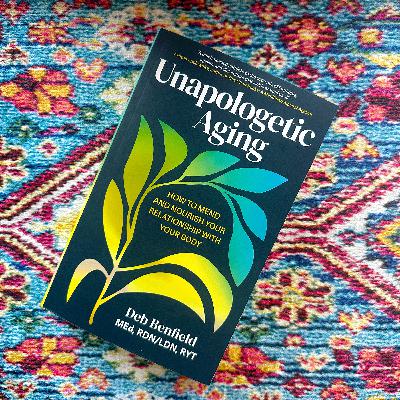


![[PREVIEW] The Year in Butters: 2025 [PREVIEW] The Year in Butters: 2025](https://s3.castbox.fm/97/0e/ee/44e1a0b26f934e73cb55f46ed899d75a91_scaled_v1_400.jpg)
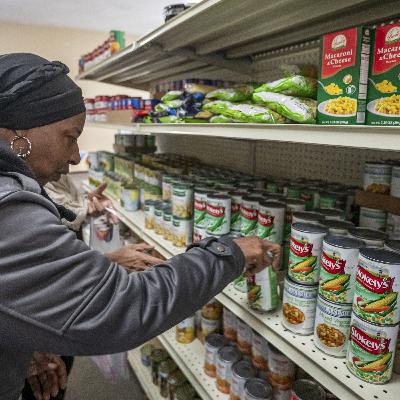
![[PREVIEW] Hot People Problems [PREVIEW] Hot People Problems](https://s3.castbox.fm/10/0c/c3/2c4186bb3ffaa958c5a4ee4d3888ceb6df_scaled_v1_400.jpg)
![[PREVIEW] Are Standing Pants Different from Sitting Pants? [PREVIEW] Are Standing Pants Different from Sitting Pants?](https://s3.castbox.fm/be/2c/0c/f737b964d5f27610acbbd373a16c29a78e_scaled_v1_400.jpg)
![[PREVIEW] How Much Did You Pay Your Pumpkin Stylist? [PREVIEW] How Much Did You Pay Your Pumpkin Stylist?](https://s3.castbox.fm/fe/3d/c0/dd8784a5450c5e085b6336501f2ac0f261_scaled_v1_400.jpg)

![[PREVIEW] Can A Body Acceptance Advocate Work for Weight Watchers? [PREVIEW] Can A Body Acceptance Advocate Work for Weight Watchers?](https://s3.castbox.fm/ce/6e/f2/62fdccc162b0b6bc777b5875f2c6d64cfa_scaled_v1_400.jpg)
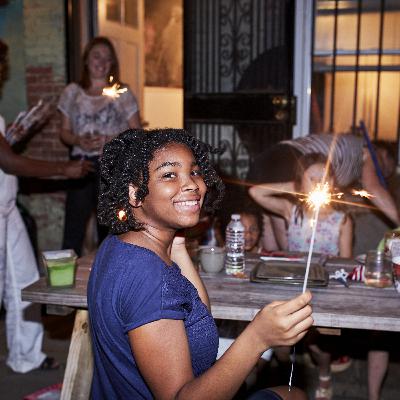
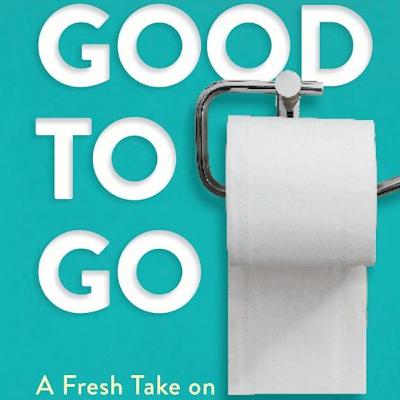
![[PREVIEW] Not Trying to Be Hot 25-Year-Olds [PREVIEW] Not Trying to Be Hot 25-Year-Olds](https://s3.castbox.fm/1c/8e/70/adb41c046a3fe07dc045af139e24fdcf89_scaled_v1_400.jpg)
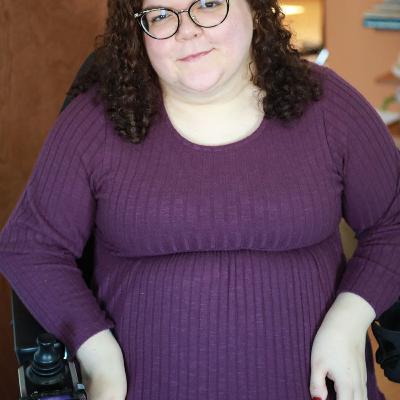


![[PREVIEW] Is Back To School A Diet? [PREVIEW] Is Back To School A Diet?](https://s3.castbox.fm/29/4e/50/fbf3f4de138a90fdd48db11f2d64935074_scaled_v1_400.jpg)

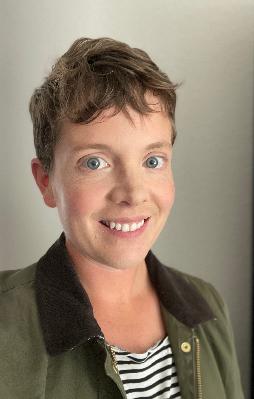
![[PREVIEW] The Mel Robbins Cult of High Fives [PREVIEW] The Mel Robbins Cult of High Fives](https://c10.patreonusercontent.com/4/patreon-media/p/post/140044903/63d8db77f7bf4ae6adc056b196ba3c37/eyJkIjo3MiwiaCI6MzAwMCwic3RyaXBfYWxwaGEiOjEsInciOjMwMDAsIndlYnAiOjB9/1.jpg?token-hash=_lgawLhrnuO4p0kAmMk8Wmg8kk1uHDzmHglZCAmOM1I%3D)



